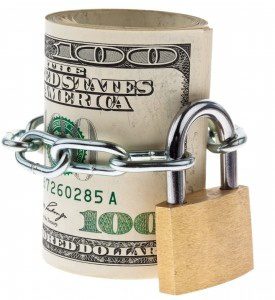TEAM UP FOR SUCCESS WITH A UNIQUE ACCOUNTABILITY PARTNER
An Accountability Partner: A Game-Changer for Your Finances
Ever launched a new project or set a lofty goal, only to find your drive fizzling out over time? You’re not alone. Imagine having a dedicated sidekick, not just cheering you on towards your financial targets, but ensuring you stick to your commitments. This ally is your accountability partner – a personal cheerleader, confidant, and reality check, helping you stick to your financial plan.
An accountability partner does more than just fan your financial ambition. They are a catalyst, providing the encouragement, insightful feedback, and constructive criticism needed to stay on track towards financial prosperity. Their role becomes crucial when navigating moments of temptation, like treating yourself on payday when you’ve pledged to save.
5 Ways Your Accountability Partner Help With Your Financial Goals
- Guiding Your Journey: They ensure you stick to your financial roadmap, keeping up the momentum even amidst setbacks.
- Delivering Objective Feedback: They offer an unbiased perspective, helping you identify your financial strengths and areas for improvement.
- Offering Emotional Support: Reaching financial goals can be intimidating. A partner provides emotional comfort, ensuring the journey is less daunting.
- Recognizing Milestones: Every financial achievement, no matter how small, deserves recognition. Celebrating these wins together boosts morale and strengthens determination.
- Fostering Innovative Thoughts: Collaborative thinking often leads to fresh financial strategies, making your journey more fruitful and effective.

Where To Find Your Ideal Ally?
Securing the right accountability partner requires thoughtful consideration, just like choosing the perfect workout buddy – someone who’s reliable, motivated, and financially savvy. Where to find such an individual, especially if your network is limited? Here are some potential sources to explore:
- Digital Forums and Communities: Platforms like LinkedIn Reddit, or Quora host groups focused on specific interests, including finance.
- Virtual Gatherings: Services like Clubhouse, Meetup organize online meetings where you can network with individuals who share your financial goals. Side note (Clubhouse is actually where I learned about trading and finances during the confinement).
- Social Media: Platforms like Twitter, Instagram, or Facebook offer plenty of opportunities to connect with like-minded individuals in your area of interest.
Digital Tools: Enhancing Your Accountability Journey
If the search for the right accountability partner has your partner is proving challenging , digital tools are here to save the day. In the same way you monitor your fitness goals on apps, these innovative platforms can bolster your accountability. Here are few app that can be truly useful:
Habitshare: A unique blend of social networking and habit tracking, HabitShare allows you to share habits with friends for added accountability, exchange motivational messages, and keep up with each other’s progress.
- StickK: Created by behavioral economists at Yale University, StickK encourages you to draft a ‘Commitment Contract’ for your goal. Failing to meet your target has a ‘cost,’ such as a donation to a charity, serving as a powerful motivator.
- Coach.me: Offering a supportive community and a range of professional coaches, Coach.me helps you monitor your progress, find answers to your questions, and even hire a coach for personalized guidance.
Synergy: Crafting the Perfect Accountability Partnership
The success of an accountability partnership heavily relies on harmony. An ideal partner matches your dedication, extends mutual respect, communicates effectively, and exudes positivity. They should represent trustworthiness, reliability, and inspire optimism.
The insights provided above underline why accountability partners are the secret ingredient to financial prosperity. They’re not merely partners; they’re co-pilots in your financial journey, providing guidance, motivation, and a timely reality check when needed.
FAQs
What makes a great accountability partner?
A superb partner is reliable, motivated, financially savvy, and maintains a suitable emotional distance.
Can I have more than one accountability partner?
Absolutely, you can! But remember, quality trumps quantity.
How often should I interact with my accountability partner?
Consistency is key, so establish a regular schedule that works for both of you.

If you found this article enlightening, share it within your circles or even forward it to a prospective accountability partner. Embark on your journey towards financial success today, and remember to subscribe to our newsletter for more potent strategies to achieve success.


















